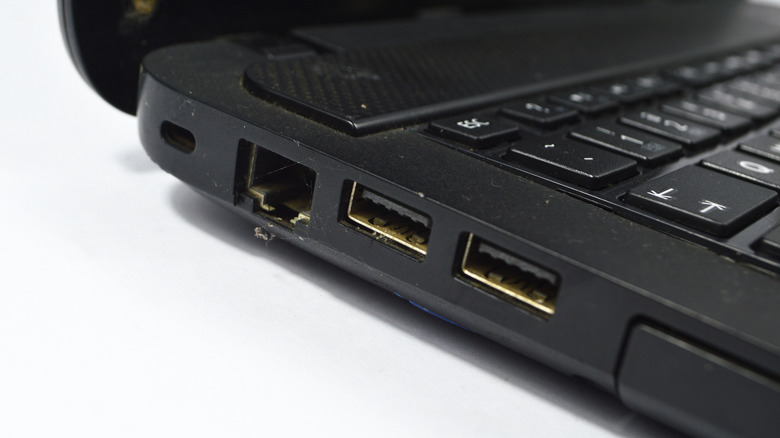Is It Normal For USB Ports To Get Hot? (And Why It May Happen)
Universal Serial Bus (USB) ports are a fundamental part of a computing setup, giving you the chance to connect peripherals and accessories like keyboards, mice, gaming controllers, graphics tablets, and external memory storage. They supply power from your computer to the connected device so it can do whatever it's supposed to do. Depending on exactly what that entails, they can end up doing some real heavy lifting.
When in use for a while, it's normal for a USB port to get a little warm, much like most other parts of your computer. This is particularly common if your computer is producing a lot of heat from the fans, is in a warm environment, or when the connected USB device is receiving a lot of power from the port. Sometimes, though, the amount of heat that seems to be being generated from your USB socket might be worrying, as it could reflect a hardware issue. Or, you might be worried about how the heat could impact your computer. If a USB port is excessively hot, you're going to want to figure out why it's happening.
Your computer might not have good enough ventilation around it, or there might be a hardware defect. For example, a fan might be blocked or malfunctioning, causing your whole computer to overheat, rather than just the USB port itself. Or, there may be an issue with the socket or the device that's plugged into it. External data storage, like USB flash drives, can also get really hot while transferring data, depending on what materials they're made of and how old they are.
How to keep your USB ports cool
Improving ventilation around your computer and making sure your fans are working as they should be is a strong starting point. Computers generate a lot of heat in general, and in a lot of builds, USB ports sit close to other components that can also heat up. So, keeping your computer cool in general is a good way of cooling down those ports, too. You can improve ventilation by cleaning any dust and debris from inside your computer, which can help fans operate optimally.
Using a laptop? You might find that a cooler makes a difference to your overheating USB ports. Cooling pads sit underneath your laptop on a hard surface like a table or desk and help to improve air flow around your machine. Laptop stands are another, similar tool that can be helpful for cooling things down, as they allow more air to reach your built-in fans.
Although the USB ports may appear like they're getting hot on their own, there's a good chance that they feel warm because of other internal processes happening in your computer. In this case, you'll need to address that problem to cool down your USB sockets. Central Processing Units (CPUs) can consistently pump out heat that's anywhere between 104 and 176 degrees Fahrenheit, depending on what you're using your computer for, which in turn can make other nearby parts of your computer pretty warm. To keep on top of this, you should keep your computer well-ventilated and look out for any tell-tale signs that your CPU might be failing.

